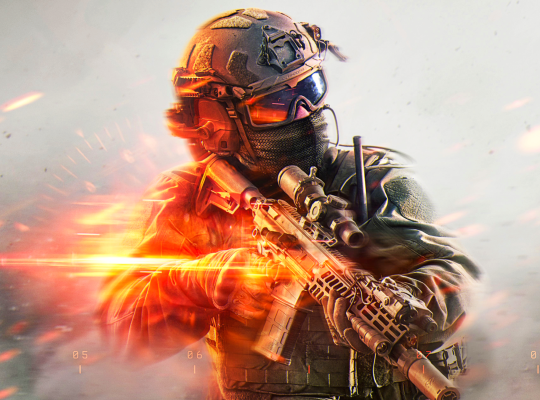A Franchise Once “Too Big to Fail” Is Now Struggling to Stay Afloat
For decades, Call of Duty operated under the belief that it was immune to failure. Year after year, the series delivered massive player counts, record-breaking sales, and unmatched cultural reach. But with Black Ops 7, that era appears to be ending. The latest installment has launched to the weakest performance in the franchise’s history, exposing a deepening fatigue among players and raising concerns about Activision’s long-term viability.
Overwhelmingly negative trailer reception, player dissatisfaction, and a dramatically shrinking market presence have converged into what many are calling the most significant decline Call of Duty has ever faced.
A Launch Defined by Low Player Counts and Rapid Disengagement
On Steam, Black Ops 7 peaked at around 87,000 concurrent players, only barely climbing above 100,000 over the weekend. But this number includes activity through the unified launcher, which counts multiple Call of Duty titles—including the free-to-play Warzone.
By comparison, last year’s Black Ops 6 debuted at more than 300,000 concurrent players, making this year’s game a 60–70% decline.
Physical sales in the UK dropped by a nearly identical margin, suggesting that this downturn spans platforms and regions, not just PC enthusiasts.
Players Are Exhausted by the CoD Formula
One of the strongest messages coming from players is simple:
They’re tired.
The annual release schedule has long demanded $70 for what many feel is minimal innovation. Black Ops 7 in particular has been widely criticized as:
- A shallow, fragmented campaign
- A co-op experience plagued by AFK players
- A collection of reused assets and familiar maps
- A product that feels more like DLC than a complete game
Additionally, the launch experience has become increasingly bloated. Instead of jumping directly into gameplay, players are met with:
- Forced restarts
- Shader installations
- Advertising for bundles and other Call of Duty titles
- A unified launcher pushing monetization before gameplay
This friction has become symbolic of a broader problem:
players feel the game is designed for revenue first, experience second.
A Product Undermined by Cost Cutting and Creative Decline
The development of Black Ops 7 shows clear signs of corner-cutting. From recycled content to quick fixes, the game struggles to present a cohesive or polished vision.
Meanwhile, reports show that past Call of Duty titles cost hundreds of millions to develop, with total expenditures—including marketing—likely pushing well into the billion-dollar range.
When paired with a historic drop in sales and subscriptions barely rising, the financial picture for Activision grows increasingly uncertain.
Competition Has Never Been Stronger
One of the largest factors hurting Call of Duty today is the overwhelming number of alternative shooters:
- Battlefield 6
- Arc Raiders
- A growing number of indie FPS projects
Many of these titles are lower-priced yet richer in content, proving that quality and value now matter more than brand recognition.
The era of buying a game simply because it says “Call of Duty” on the box is ending.
Microsoft’s Burden: A Franchise Too Heavy to Carry
Microsoft’s recent acquisition of Activision placed enormous financial pressure on Call of Duty to perform. When the deal closed, Xbox’s revenue skyrocketed—solely because Activision was added to the books.
Now, both Game Pass and Call of Duty are declining at the same time, creating a situation where:
- High development costs
- Shrinking engagement
- Mandatory yearly releases
- Studio burnout
- Widespread layoffs
- Increased reliance on AI
- A weakening reputation
…all collide at once.
The ecosystem surrounding Call of Duty was not built to handle a collapse of this scale.
A Crisis of Identity and a Disappearing Player Base
The public response is clear:
the Call of Duty formula no longer works.
Players are moving on. Content creators who built entire careers around the franchise are reporting dramatic drops in viewership—some losing more than 90% of their audience over five years.
This mirrors the broader trend:
If players aren’t watching the content, they’re not playing the game.
Once interest evaporates at this scale, regaining it becomes nearly impossible.
The Future of Call of Duty Has Never Looked More Uncertain
The release of Black Ops 7 represents more than just a disappointing year. It signals a structural failure in how Activision—and now Microsoft—approach game development.
The industry is shifting toward passion-driven projects, creative innovation, and fair value. Meanwhile, Call of Duty remains tied to an aging, heavily monetized machine that no longer resonates with players.
Whether this forces meaningful change or accelerates the franchise’s decline remains to be seen. But one thing has never been clearer:
Call of Duty is no longer too big to fail. It is failing right now—and the entire industry is watching.











